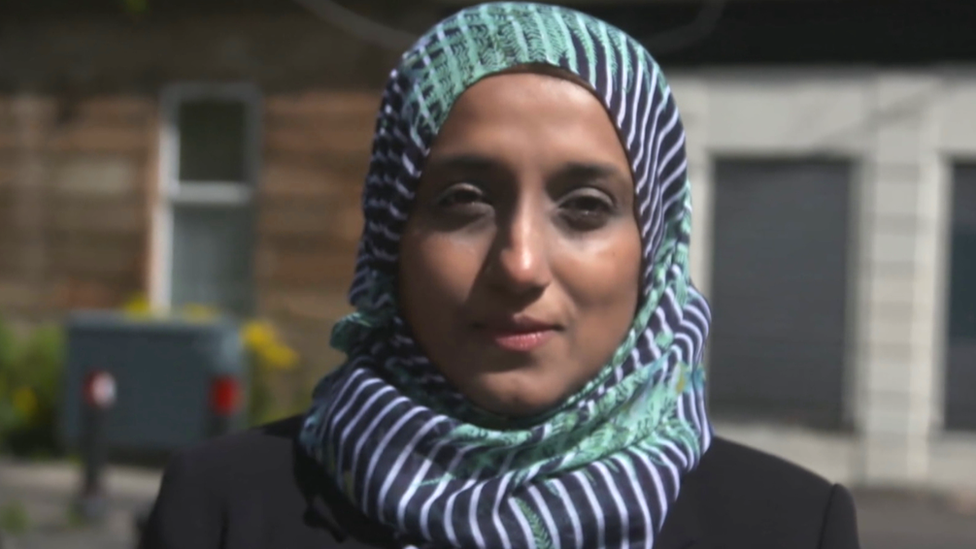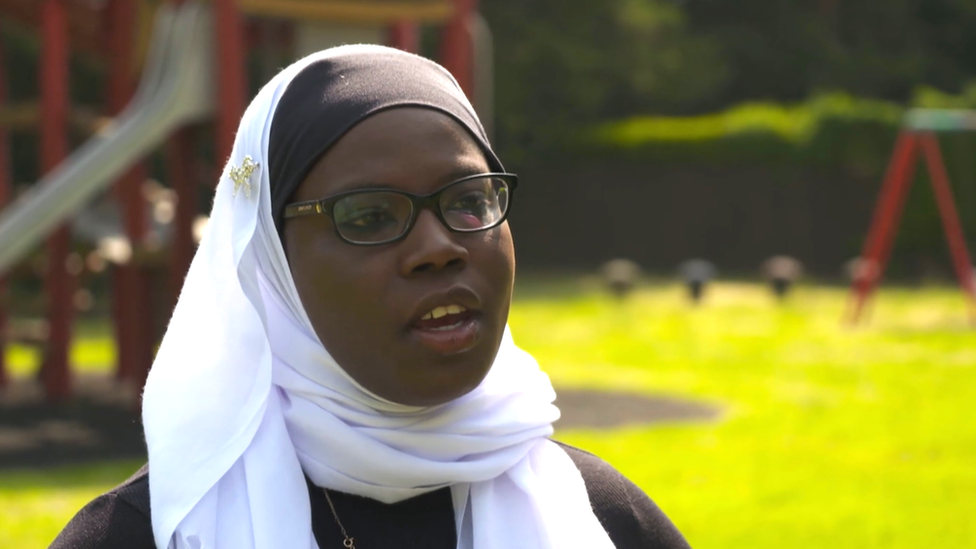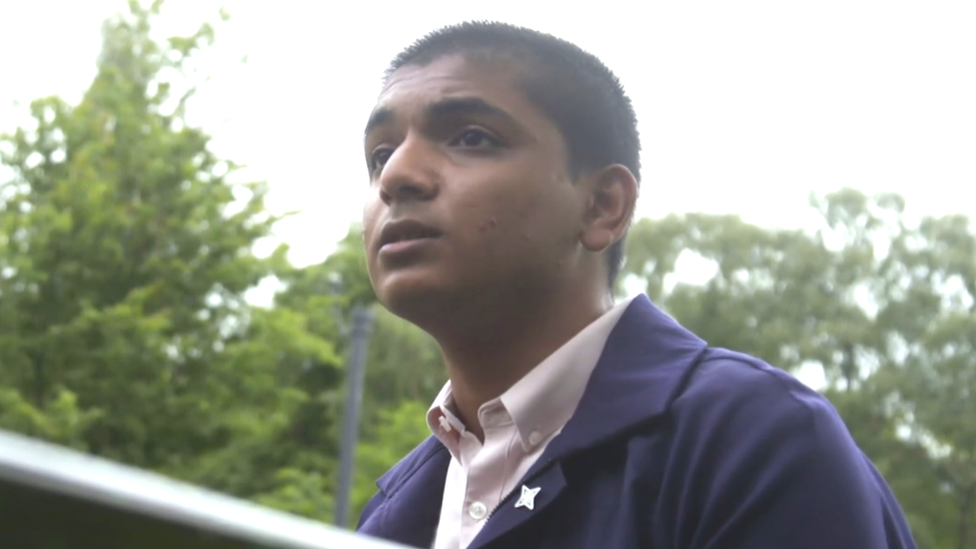Why are there so few ethnic minority MSPs?
- Published
Why are there so few ethnic minority MSPs?
MSPs have hit out at the lack of ethnic minority representation at Holyrood as the Black Lives Matter movement continues to reshape politics. But why has Holyrood had so few members from minority backgrounds, and how could this change in 2021?

The Black Lives Matter movement has been debated in the Scottish Parliament, but it has also raised questions about why there are only two MSPs from ethnic minority backgrounds to take part in such debates.
In five Holyrood elections since 1999, each electing 129 MSPs, Holyrood has had a total of four members from black, Asian and minority ethnic (BAME) communities - all of them men of Scots-Pakistani heritage.
One of the four - Justice Secretary Humza Yousaf - said, external that a record of "no black MSP ever, no female BAME MSP ever" was "frankly a failure of all of us, regardless of party".
In a recent speech he also pointed out that the director general of every Scottish government department and the chair of every public body is white, saying "that is not good enough".
With parties now working on their candidate lists for the 2021 elections, what needs to change?

Soryia Siddique has had to deal with racism, sexism and Islamphobia
With many MPs and MSPs beginning their careers in local politics, the issue extends to Scotland's councils too.
Soryia Siddique is a Labour councillor in Glasgow, and stood for the party in the last Holyrood election in 2016.
She told BBC Scotland's The Nine programme that she has had to deal with racism, sexism and Islamophobia, saying that people would frequently mix her up with a colleague who also wore a hijab, with even council officials apparently "not being able to differentiate between us".
She said: "When I stood in 2012 as a Muslim woman of colour, some of the comments I heard were 'she's unelectable', 'she needs to be more modernised'.
"That hurt - you would hear people saying I don't come across as being Scottish enough because of the way I choose to dress.
"In 99% of the meetings I go to I'm the only woman of colour at that meeting. In policy decisions and in terms of policy shaping, it's not acceptable.
"I know there's no lack of talent, no lack of aspiration or lack of ambition. There has to be a recognition that something is happening before people get to that stage.
"Children from a BAME background don't see themselves for example in a senior management role, as senior teachers, or as policy makers and these things have an impact, without a doubt."
Fatima Zahra Joji - an SNP activist from Aberdeenshire - said more has to be done by political parties "that claim they are progressive and inclusive", but have not delivered results.

Fatima Zahra Joji says we need to look at how Scottish society is "rooted in systemic racism"
She said that "diversity is key in terms of societal progression, and if you look at today's Scottish society, we have failed in that aspect".
She said: "If you look at our black and minority ethnic population, we've got 1% who are black and if you include Asian and minority ethnic it's about 5%.
"It might seem small, but if you look at 5% of 5.5 million, you're talking about hundreds of thousands people. That's hundreds of thousands of people that you're ignoring.
"I think we need to look at our Scottish history, and how our society is rooted in systemic racism and oppression and unconscious bias, to the point where we don't even realise we're doing it.
"You need the diverse experience, the lived experiences if you want to make a society that you claim is representative and progressive, and when many people are held back it's going to affect people who claim they are not."

Rafe Uddin believes the burden of finding the solution to problems is too often put on people from ethnic minority backgrounds
Efforts are being made to get more young people to at least get a taste of life at Holyrood. The John Smith Centre - a think tank at the University of Glasgow - has recently doubled the number of recruits to its parliamentary internship programme, external, with the aim of half of them being taken up by students from BAME backgrounds.
Rafe Uddin is a student who went on one of these internships, and said that "the moment you walk into Holyrood, it's quite obvious that you're one of a few people in parliament from an ethnic minority background".
He said too often the onus is put on people from ethnic minority backgrounds to fix the problem themselves - that they are "sort of burdened with having to find the solution to problems that are very much out of their control".
Rafe said having candidate shortlists that deliberately promote black and Asian women could help boost representation.
He said: "All-women shortlists have been incredibly effective in the Labour party in particular, it's reshaped the composition of that party and put more women in politics and actually at the fore of politics too.
"You can have ethnic minority shortlists as well, and there's nothing to say you couldn't have shortlists with black women and Asian women in particular to actually help both with gender composition and ethnic minority representation."
What are the parties doing?
The SNP said Holyrood needs to "better reflect our population", saying the first job was to "encourage many more BAME members to come forward" as candidates.
A party spokesman said legislation might prevent them from "addressing this in the same way that we did to increase the number of women being elected", but said they would "be taking steps to make sure that BAME candidates are involved in selection contests in as many seats as possible"
The Scottish Conservatives have set up a commission led by former MEP Nosheena Mobarik which aims to get more women and ethnic minority candidates elected.
A spokesman said the party has "a vibrant and diverse range of members, activists and staff from all backgrounds that are now working through the ranks", and that the best way to improve representation was "removing barriers that are stopping people from standing".
Meanwhile, the Lib Dems are considering plans to put candidates who are women, disabled or from minority ethnic backgrounds forward in their "most winnable" seats in 2021.